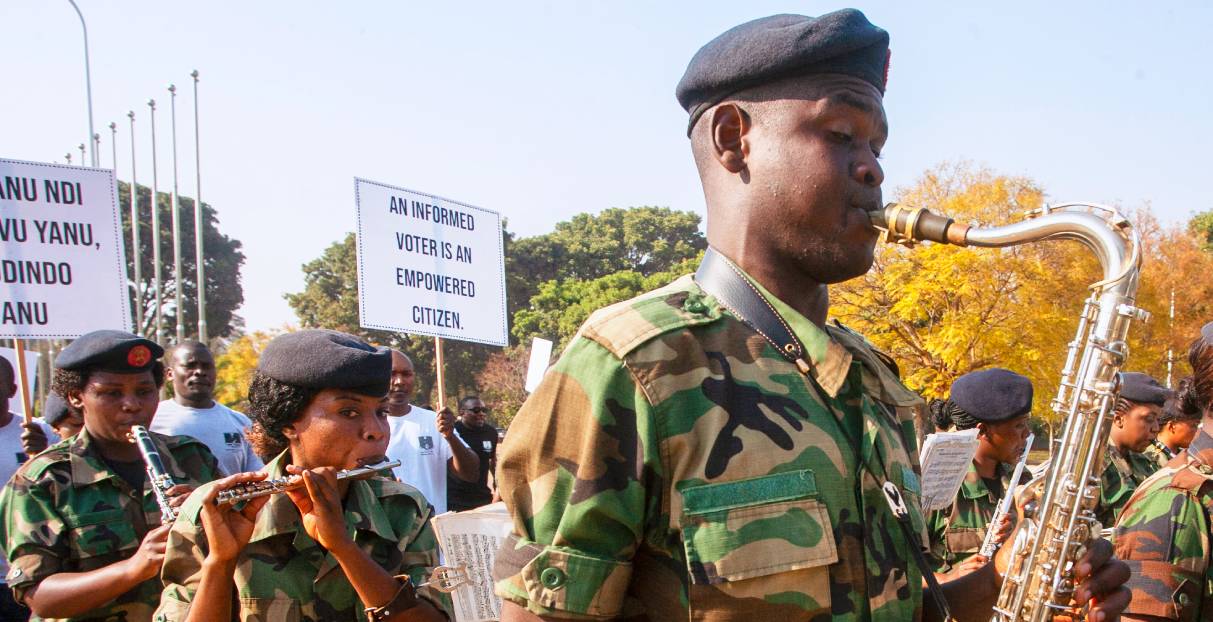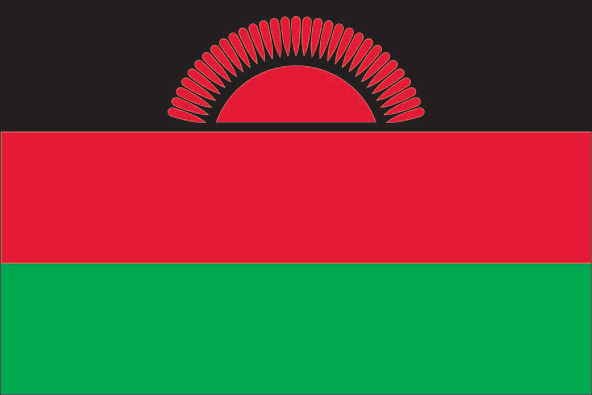« Previous: Gabon (April 12)
Next: Seychelles (September 27) »
Presidential and Legislative Elections
September 16
The preeminent issue driving Malawi’s presidential election is the economy. Malawi has been particularly hard hit by the severe El Niño-induced drought that impacted southern Africa in 2024. As Malawi is a land-locked country with 80 percent of its population living in rural areas, the drought has had the compounding effect of spiking unemployment. These hardships have been exacerbated by food price inflation of over 20 percent. As a result, a quarter of Malawi’s 23 million citizens are facing acute food insecurity.
Malawi’s economic woes directly impact President Lazarus Chakwera’s campaign, who as leader of the Malawian Congress Party is contesting for a second term in office. Chakwera is being challenged by two former presidents: 84-year-old Peter Mutharika (of the Democratic Progressive Party), whom Chakwera defeated in the 2020 presidential contest, and 74-year-old Joyce Banda (of the People’s Party), who was president from 2012 to 2014. While each candidate can tout their executive experience, each is burdened by links to previous bouts of economic turmoil and allegations of corruption.
Key issues to watch in Malawi’s 2025 elections will be the resiliency of Malawi’s civic institutions and courts to ensure a fair process.
With the requirement that a winning candidate must secure more than 50 percent of the vote, there is a strong possibility the election will go to a second round. Reaching this threshold will likely entail coalition building among other parties. This may elevate the leverage smaller parties, such as the United Transformation Movement (UTM) and the United Democratic Front, to shift the focus of the campaign away from the personalities and politics of the established parties and toward fresh proposals to address Malawi’s acute economic challenges. The UTM is still recovering from the death of its founder, Vice President Saulos Chilima, in a plane crash in June 2024. Chilima had a particularly strong following among Malawi’s youth.
Moving the debate to substantive issues is particularly relevant given the structural dimensions of many of Malawi’s challenges, which transcend any one administration. Prime among these is corruption. With a Transparency International Corruption Perceptions Index ranking of 115 out of 180 countries, Malawi is far from the most egregious African country in this regard. However, the pervasiveness of patronage directly impacts public services and job creation—and public trust. With an annual per capita income of $463, this misallocation of resources is particularly damaging.
The pervasiveness of patronage directly impacts public services, job creation, and public trust.
Malawi’s Anti-Corruption Bureau (ACB) has been operational since 1998 and, in recent years, had gained more independence from political influences. In the 3-year tenure of Director General Martha Chizuma, a record high 119 cases were investigated, including against high-profile politicians, often involving bribery and procurement fraud. Cutting too close to home for some senior officials, however, Chizuma faced numerous institutional obstacles before finally resigning in 2024 after the ACB was starved of funds. A central campaign theme of interest to Malawian citizens, then, will be how the ACB and other anticorruption bodies can be further empowered.
Another priority campaign theme is sustainable economic diversification. Given its heavy reliance on rain-fed agriculture for livelihoods, Malawi is particularly susceptible to variations in the weather. Home to one of Africa’s most youthful populations, with a median age of 17.8 years, Malawi’s population has nearly doubled in the past 20 years. Unless enough jobs can be created, Malawi is vulnerable to higher levels of petty and organized crime.
Malawi’s demographic pressures are resulting in ever smaller farm sizes and a 21-percent decline in its forests since 2022. The loss of forests, in turn, is contributing to declining soil fertility, biodiversity, and water retention. With 89 percent of Malawians lacking electricity, the demand for charcoal as an energy source puts further pressure on these land resources. The tree cover loss is leaving the country increasingly vulnerable to the devastation of cyclones—as seen by recent storms Idai and Freddy—and the growing prevalence of these intense weather events.

Malawi Electoral Commission staff, accredited civil society organisations, members of the public, and members of the Malawi Defense Forces military band march in Lilongwe to mark the official beginning of the electoral period ahead of the 2025 Malawi General Elections. (Photo: AFP/Amos Gumulira)
The strains of the election campaign have already led to criticism over the impartiality of the Malawian Electoral Commission and the efforts to register new voters. However, Malawi’s Constitutional Court has a reputation for independence with its precedent-setting rejection of the 2019 presidential election results that claimed a victory for the then-incumbent, Mutharika, prompting a rerun that led to a successful outcome for the Chakwera coalition.
Malawi also benefits from a vibrant civic identity and resilient civil society that is consistently demanding higher levels of transparency, respect for the rule of law, and holding politicians accountable. Malawi, furthermore, maintains an active independent media, support for which has been strengthened under the Chakwera administration. Illustratively, in 2024, the Malawi Human Rights Commission ruled in favor of access to information requests of the government, and the Malawi Communications Regulatory Authority has allocated more radio frequencies, enhancing broadcasting diversity.
The Malawian military also has a reputation for professionalism and independence.
The Malawian military also has a reputation for professionalism and independence, including when under pressure by the Mutharika government to crackdown on protesters during the 2019 election crisis. Malawi’s security agencies, especially the Malawi Police Service and the Malawi Defence Force, are also working collaboratively to implement an integrated national election security plan.
Key issues to watch in Malawi’s 2025 elections will be the resiliency of Malawi’s civic institutions and courts to ensure a fair process and the effectiveness of reformist coalitions to come together and forge a path forward to address Malawi’s pressing challenges.
Hany Wahila is a Research Assistant with the Africa Center for Strategic Studies.
Previous
« Gabon (April 12)
Next
Seychelles (September 27) »


 Malawi: A Battle of Former Presidents as Citizens Seek Path to Reform
Malawi: A Battle of Former Presidents as Citizens Seek Path to Reform